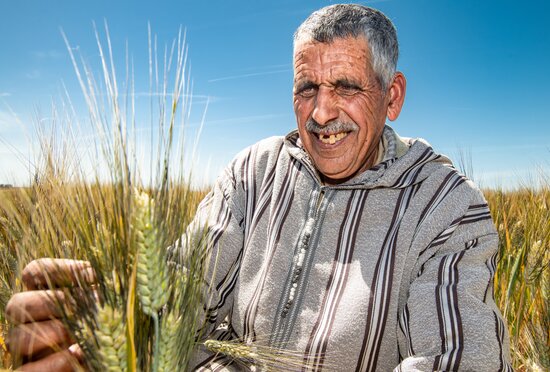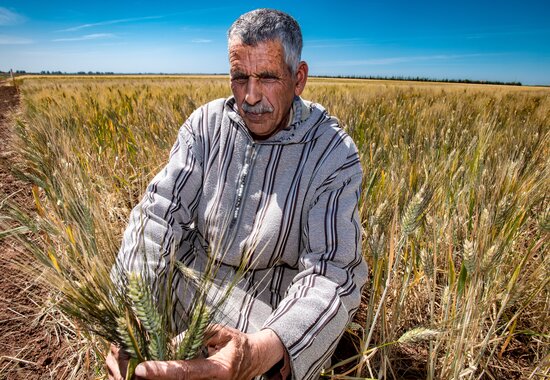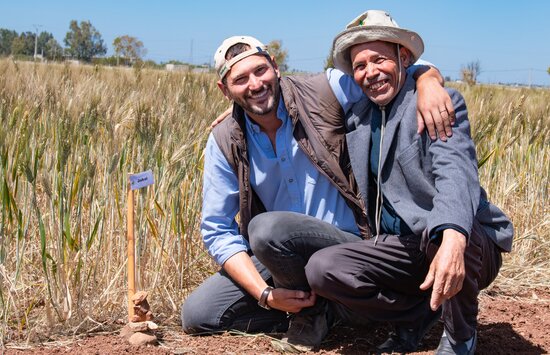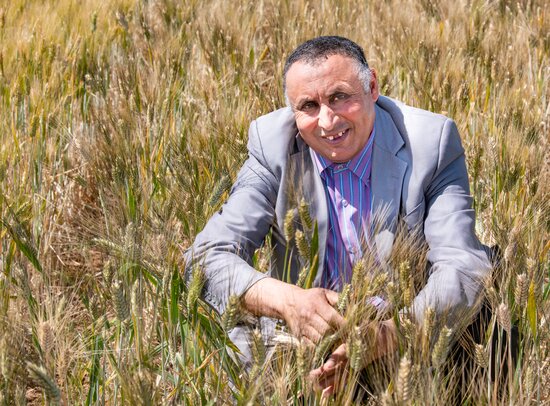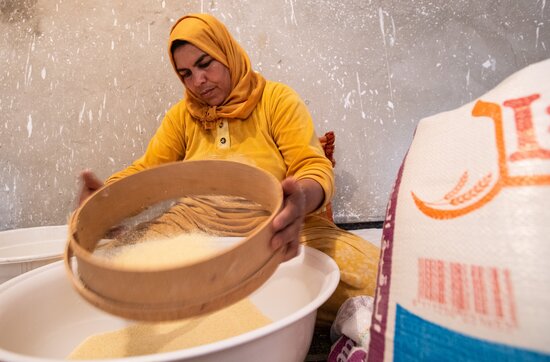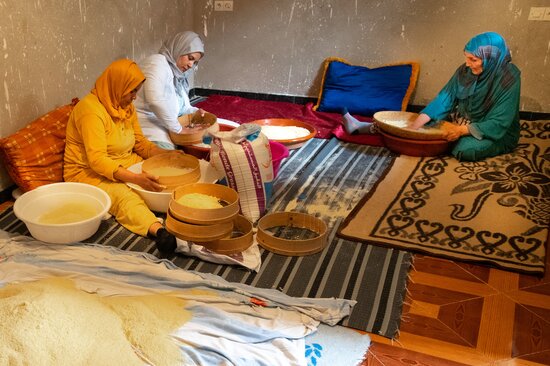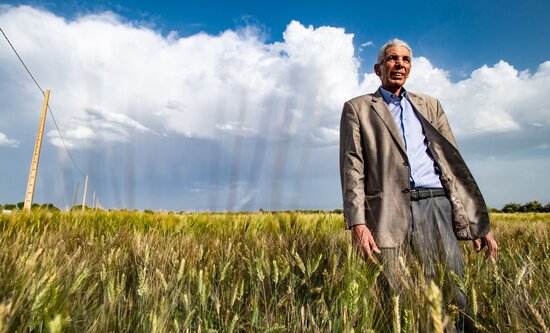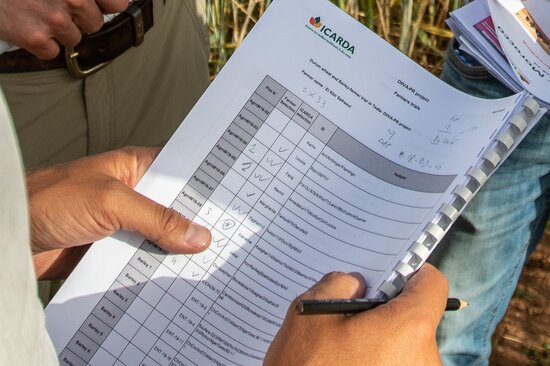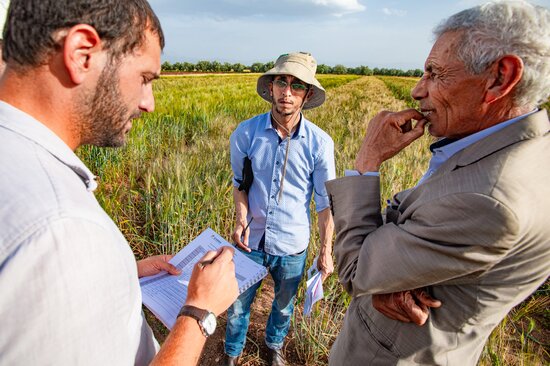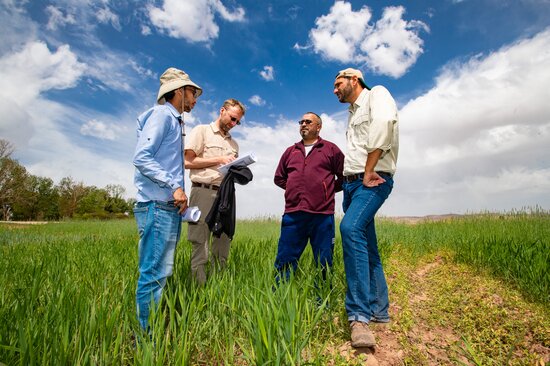CAMPAIGNS
Jabal Durum Wheat
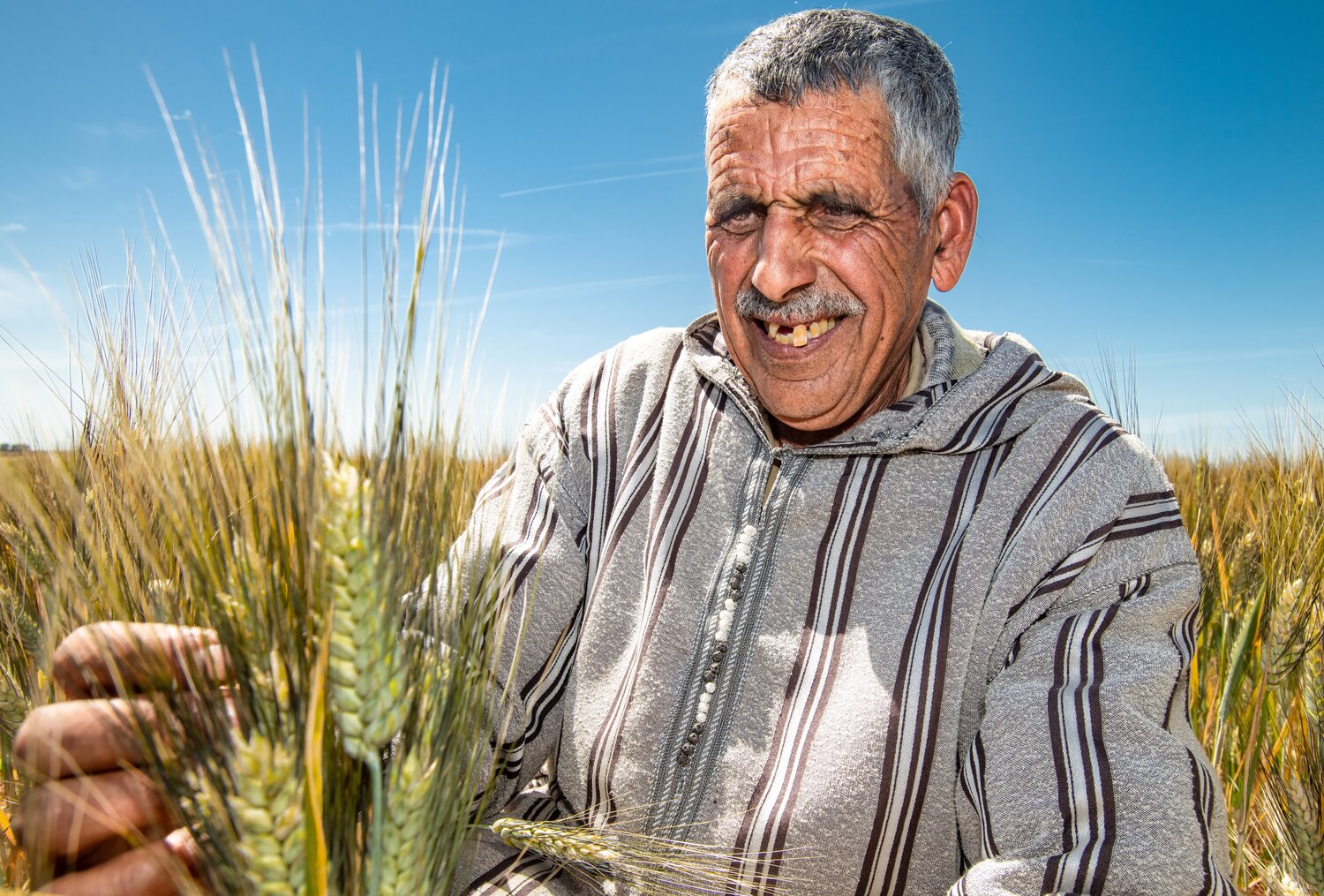
After years of hard work, a new drought-tolerant variety of durum wheat developed by plant breeders and genebank staff at the International Centre for Agricultural Research in the Dry Areas (ICARDA) working in close collaboration with local farmers, with support from the Crop Trust, has been officially released for cultivation in Morocco.
Named Jabal, which means “mountain” in Arabic, this climate change-resilient variety got its name from one of the farmers taking part in the evaluation program during its development, who said that its distinctive black spikes were like the Atlas Mountains, “strong and proud”.
Unlike other durum wheat varieties grown in the region, Jabal’s wild genes enabled it to thrive despite some of the worst droughts farmers had seen in decades.
Key Messages
- The new “Jabal” variety was made by crossing cultivated durum wheat with one of its wild relatives, collected in Syria.
- Jabal, which means “mountain” in Arabic, was singled out by farmers in consultations with crop breeders because it adapted so well to drought, a common stress in its main cultivation areas.
- Durum wheat is grown primarily to produce pasta, but is also used for making couscous and bulgur, which are particularly popular in North Africa and the Middle East.
- Jabal was developed under the Crop Trust’s Crop Wild Relatives Project and durum wheat is one of the crops that will continue to receive support from the follow-up Biodiversity for Opportunities, Livelihoods and Development (BOLD) Project, a 10-year effort funded by the Government of Norway and led by the Crop Trust.
- The Crop Trust’s partners are using crop diversity to develop resilient varieties of barley, durum wheat, grasspea, alfalfa, finger millet, rice and potato that can withstand the effects of climate change.

